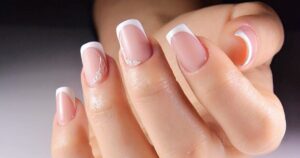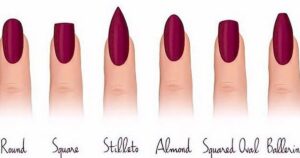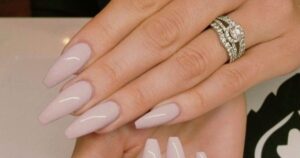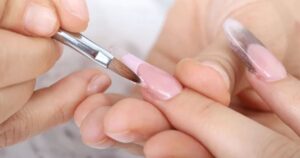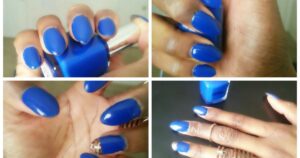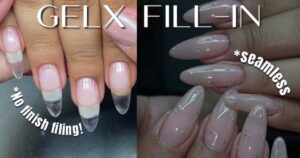Discover the fascinating science behind the effects of baking soda on gray hair. This informative article explores the potential of baking soda to reverse the signs of graying and provides detailed instructions on how to use it effectively. Gain insight into the potential benefits and precautions of using baking soda on gray hair, while dispelling common myths and misconceptions. Additionally, explore alternative natural remedies for gray hair. Join us as we delve into the world of baking soda and its impact on your hair’s color.
Key Takeaways
- Baking soda restores the natural pH balance of the scalp.
- Baking soda stimulates the production of melanin, the pigment responsible for hair color.
- Baking soda removes impurities and excess oils from the scalp.
- Baking soda should be used in moderation to avoid drying out the hair and scalp.
The Science Behind Baking Soda and Gray Hair
What is the scientific explanation behind the effectiveness of baking soda in reversing gray hair? Baking soda has been praised for its many health and beauty benefits, including its potential to reverse gray hair. The alkaline nature of baking soda helps to restore the natural pH balance of the scalp, promoting healthier hair growth. It is believed that baking soda can stimulate the production of melanin, the pigment responsible for hair color. Additionally, baking soda can help remove impurities and excess oils from the scalp, which can lead to improved hair texture and overall hair health. However, it is important to note that further scientific research is needed to fully understand the effects of baking soda on hair growth and texture. Transitioning into the next section, let’s explore the question: Does baking soda really reverse gray hair?
Does Baking Soda Really Reverse Gray Hair
The effectiveness of baking soda in reversing gray hair is a topic of current discussion among experts. Baking soda, also known as sodium bicarbonate, has been touted as a natural remedy for various hair-related issues, including turning gray hair back to its original color. However, before using baking soda on your hair, it is important to be aware of any potential side effects or hair damage that may occur. Some experts caution that baking soda can be abrasive and may strip the hair of its natural oils, leading to dryness and damage. Additionally, excessive use of baking soda can disrupt the pH balance of the scalp, causing irritation and inflammation. It is advisable to proceed with caution and consult a professional before trying baking soda on gray hair.
Transition: Now that we understand the potential risks associated with using baking soda on gray hair, let’s explore how to use it safely and effectively.
How to Use Baking Soda on Gray Hair
To use baking soda on gray hair, start by mixing equal parts of baking soda and water to create a paste. Apply the paste to damp hair, focusing on the gray areas. Leave it on for 10-15 minutes before rinsing thoroughly. This method can help to remove buildup, restore shine, and temporarily darken gray hair.
Gray Hair Treatment
Using baking soda as a treatment for gray hair has gained attention due to its potential to restore natural color and reduce graying. Many people are seeking natural remedies to enhance hair pigmentation and slow down the aging process. Baking soda, a common household ingredient, has been suggested as a possible solution. Here are five reasons why baking soda has become a popular choice for gray hair treatment:
- Affordability: Baking soda is a cost-effective option compared to other hair treatments.
- Availability: Baking soda is readily available in most households or can be easily purchased.
- Convenience: The application of baking soda on hair is simple and can be done at home.
- Mildness: Baking soda is gentle on the hair and scalp, making it suitable for regular use.
- Potential benefits: Some individuals claim that using baking soda can restore natural hair color and reduce graying.
Considering these benefits, it is worth exploring the potential advantages of incorporating baking soda into your hair care routine.
Baking Soda Benefits
Incorporating baking soda into your hair care routine can provide noticeable benefits for gray hair, such as restoring natural color and reducing graying. Baking soda, also known as sodium bicarbonate, has been used for various beauty purposes due to its alkaline nature and exfoliating properties. When applied to the scalp, baking soda can help remove impurities and product build-up, which can contribute to dullness and graying of hair. Additionally, baking soda can help balance the pH level of the scalp, promoting a healthy environment for hair growth. To maximize the benefits, you can create a baking soda hair mask by mixing baking soda with water to form a paste and applying it to your scalp and hair. Leave it on for a few minutes before rinsing thoroughly. However, it is important to note that baking soda should be used in moderation and not excessively, as it can be drying to the hair and scalp. Always conduct a patch test and consult with a professional before incorporating baking soda into your hair care routine.
Application Tips for Gray Hair
Frequently, individuals with gray hair can enhance the effectiveness of baking soda by carefully applying it to their hair and scalp using gentle, circular motions. This simple technique can offer several benefits for gray hair, including:
- Restoring natural shine and luster
- Reducing yellow or brassy tones
- Removing product buildup
- Balancing pH levels of the scalp
- Promoting healthy hair growth
Potential Benefits of Baking Soda for Gray Hair
Baking soda has shown promising potential in reducing the appearance of gray hair. Many individuals with gray hair seek ways to restore their natural hair color or improve its overall appearance. Baking soda, a common household ingredient, has gained attention for its potential benefits in this regard. Research suggests that baking soda can help remove impurities and buildup from the hair, resulting in a smoother and shinier texture. Additionally, some people have reported that baking soda can help lighten gray hair, making it less noticeable. However, it is important to note that baking soda may interact with hair dye, potentially altering the color or affecting the results. It is advisable to conduct a patch test and consult a professional before using baking soda on colored or treated hair.
Precautions and Considerations for Using Baking Soda on Gray Hair
Before using baking soda on gray hair, it is important to take certain precautions and considerations. First, test the baking soda mixture on a small patch of hair to check for any allergic reactions or adverse effects. Second, avoid using baking soda too frequently as it can cause dryness and strip the hair of natural oils. Lastly, it is important to remember that baking soda may not provide long-lasting results and can potentially alter the color of the hair if used excessively.
Scalp Irritation Prevention
One must take proper precautions and consider alternatives to minimize the risk of scalp irritation when using certain products, such as baking soda, on gray hair. Gray hair tends to be more sensitive and prone to dryness and breakage, so it is essential to prioritize scalp health when using any hair care product. To prevent scalp irritation, consider the following:
- Perform a patch test before using any new product to check for allergic reactions.
- Dilute baking soda with water or mix it with a gentle shampoo to reduce its abrasive properties.
- Limit the frequency of using baking soda on the scalp to avoid excessive dryness.
- Follow up with a moisturizing conditioner or hair mask to restore hydration to the hair and scalp.
- Explore alternative natural remedies, such as apple cider vinegar or aloe vera, which can provide similar benefits without the risk of scalp irritation.
Hair Color Preservation
When discussing hair color preservation, it is crucial to consider the potential impact of using baking soda on gray hair and take necessary precautions to minimize any adverse effects. Baking soda has long been used as a natural remedy for various hair care issues, including removing buildup and enhancing shine. However, when it comes to gray hair, caution must be exercised due to its unique characteristics. Gray hair tends to be more porous and prone to dryness, which can be exacerbated by baking soda’s alkaline nature. This can lead to increased porosity, loss of moisture, and even a change in the hair’s color. To ensure the best results, it is advisable to consult with a professional hairstylist or dermatologist before incorporating baking soda into your hair care routine. They can provide personalized guidance and recommend alternative natural hair remedies that are more suitable for gray hair.
| Pros of Baking Soda on Gray Hair | Cons of Baking Soda on Gray Hair |
|---|---|
| Removes buildup | Increased porosity |
| Enhances shine | Loss of moisture |
| Natural remedy | Change in hair color |
Common Myths and Misconceptions About Baking Soda and Gray Hair
Many people mistakenly believe that using baking soda on gray hair will automatically restore its natural color. However, this is a common myth that needs debunking. Scientific evidence suggests that baking soda does not possess the ability to reverse gray hair. Here are five important points to consider:
- Baking soda is a mild abrasive, which means it can potentially damage the hair and scalp if used excessively or incorrectly.
- Gray hair occurs due to a decrease in pigment-producing cells, not because of any external factors like baking soda.
- Baking soda cannot penetrate the hair shaft to reach the pigment-producing cells and alter their function.
- Using baking soda on gray hair may result in dryness and brittle hair, making it more prone to breakage.
- Instead of relying on baking soda, there are alternative natural remedies for gray hair that can help nourish and condition the hair, promoting overall hair health and shine.
Alternative Natural Remedies for Gray Hair
There are various alternative natural remedies available that can be beneficial for individuals looking to manage their gray hair, including the use of herbal remedies and essential oils. Many people turn to natural supplements as a way to slow down the graying process or even restore some of their natural hair color. Some popular natural supplements for gray hair include biotin, vitamins B12 and E, as well as minerals like zinc and copper. These supplements are believed to support healthy hair growth and delay the graying process. In addition to natural supplements, lifestyle changes can also play a role in managing gray hair. Eating a balanced diet rich in antioxidants, practicing stress management techniques, and avoiding smoking and excessive alcohol consumption are all ways to support overall hair health. While natural remedies may not completely reverse gray hair, they can be a helpful addition to a comprehensive hair care routine.
Conclusion
In conclusion, baking soda shows promise as a potential remedy for gray hair due to its alkaline properties and ability to remove buildup. However, further research is needed to determine its effectiveness and safety. It is important to exercise caution when using baking soda on gray hair, as it may cause dryness and damage if not used properly. Additionally, alternative natural remedies may also be worth exploring for those seeking to address gray hair concerns.


